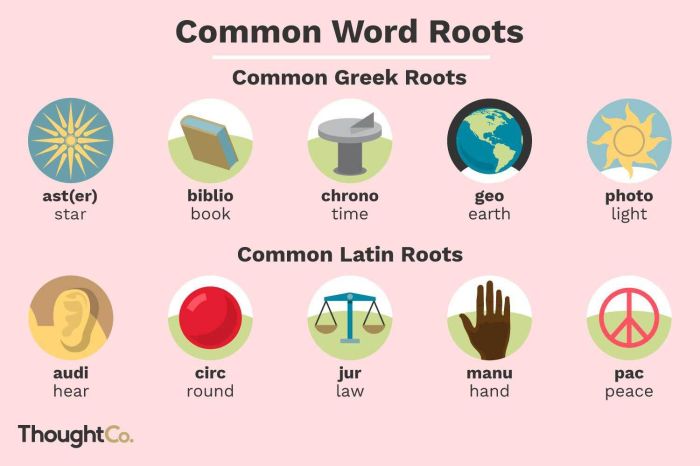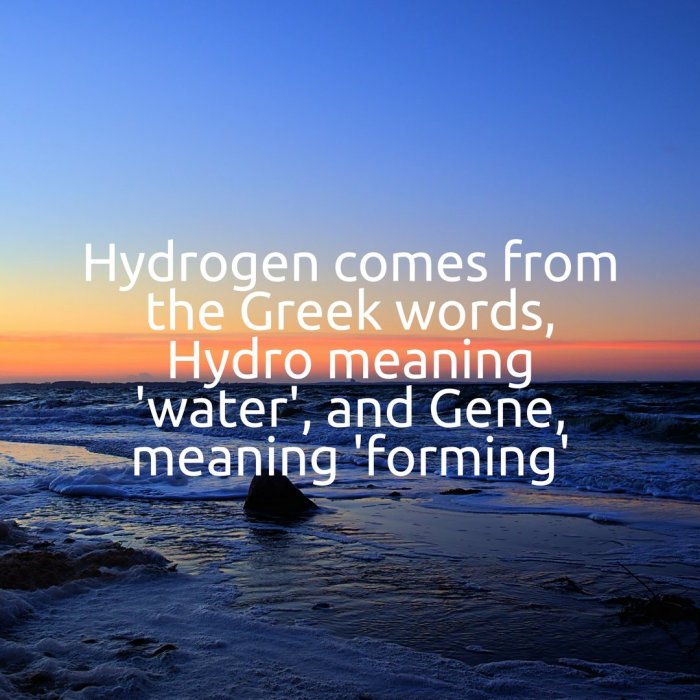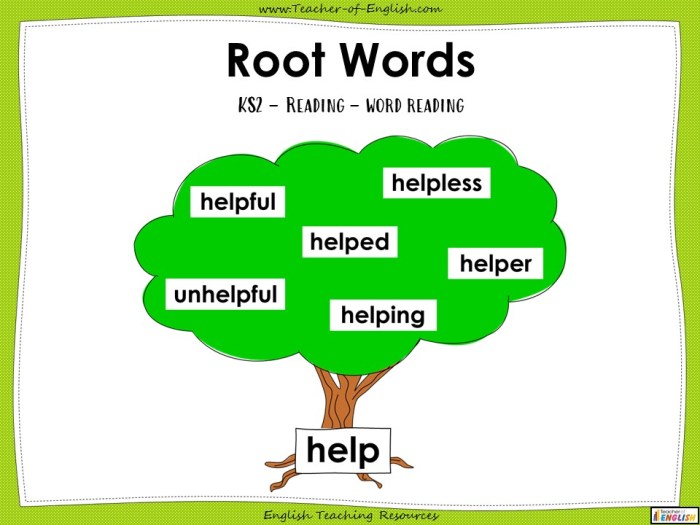Words with the root word hydr – Words with the root word “hydr” dive into the realm of water, capturing its essence and scientific significance. From ancient origins to modern applications, this exploration unveils the fascinating tapestry woven around this liquid element.
Delving into the etymology of “hydr,” we trace its historical evolution, uncovering its linguistic journey from ancient Greek to its widespread usage today.
Etymology of Hydr-: Words With The Root Word Hydr

The root word “hydr-” originates from the Ancient Greek word “hydr-” meaning “water”. It has been used in various languages throughout history, including Latin, French, and English, to denote concepts related to water.
Historical Evolution
In ancient Greek, “hydr-” was used to form words related to water, such as “hydrops” (dropsy) and “hydrology” (the study of water). The term was later adopted into Latin, where it was used in words like “hydrus” (water snake) and “hydra” (a mythical water serpent).
In English, “hydr-” has been used since the 14th century to form words related to water, such as “hydrate” (a compound containing water) and “hydraulic” (relating to the use of water in machines).
Words with the Root Word Hydr-

The root word “hydr-” comes from the Greek word “hydr,” meaning “water.” Words that contain the root word “hydr-” often relate to water or liquids.
Here is an extensive list of words that contain the root word “hydr-“:
Words Related to Water
- hydrate: to combine with water
- hydration: the process of combining with water
- hydrology: the study of water
- hydroelectric: using water to generate electricity
- hydrophobic: repelling water
- hydrophilic: attracting water
Words Related to Liquids
- hydraulic: relating to liquids
- hydraulic press: a machine that uses liquid pressure to exert force
- hydrocarbon: a compound containing hydrogen and carbon
- hydrochloric acid: a strong acid containing hydrogen, chlorine, and oxygen
- hydrogen: a colorless, odorless, and tasteless gas
- hydroxide: a compound containing hydrogen and oxygen
Words Related to Medicine
- hydrocephalus: a condition in which there is an excessive amount of fluid in the brain
- hydrocortisone: a steroid hormone used to treat inflammation
- hydrotherapy: the use of water to treat medical conditions
- hydronephrosis: a condition in which there is an excessive amount of fluid in the kidney
- hydrophobia: a fear of water
Other Words
- hydra: a mythical creature with many heads
- hydrate: a substance that contains water
- hydrant: a device for obtaining water from a water main
- hydrofoil: a boat that travels above the water’s surface on underwater wings
- hydrology: the study of water
Scientific Applications of Hydr-

The root word “hydr-” is extensively employed in scientific disciplines, particularly in the context of water and aqueous solutions. Its scientific applications stem from the fundamental principles governing the behavior of water and its interactions with other substances.
One prominent application of “hydr-” is in the field of chemistry. The term “hydration” refers to the process by which water molecules attach themselves to ions or molecules, forming hydrates. This phenomenon plays a crucial role in various chemical reactions, including the dissolution of salts and the formation of coordination complexes.
For instance, the hydration of metal ions is essential for their stability in aqueous solutions.
Hydration in Biological Systems
In biological systems, “hydr-” is central to understanding the structure and function of proteins, nucleic acids, and other biomolecules. The hydrophilic (water-loving) and hydrophobic (water-hating) properties of these molecules determine their behavior in aqueous environments. For example, the hydrophilic nature of proteins allows them to interact with water and form hydrogen bonds, which is crucial for their proper folding and function.
Hydrogeology
In hydrogeology, “hydr-” is used to study the movement and distribution of water in the Earth’s crust. Terms such as “hydrology” and “hydrogeology” encompass the study of groundwater, surface water, and their interactions with the surrounding environment. Hydrogeologists utilize various techniques, including groundwater modeling and aquifer characterization, to understand the behavior of water in different geological formations.
Cultural Significance of Hydr-
The root “hydr-” has profound cultural implications and symbolism, deeply intertwined with water’s life-giving and transformative qualities. Throughout history, it has permeated mythology, literature, and art, inspiring awe and wonder.
Words with the root word hydr- relate to water, like the Hydra, a mythical multi-headed water serpent. If you’re curious about chemistry, you might have wondered, which image shows 2 hexyne ? Coming back to words with the root word hydr-, they can also describe things that absorb water, like hydrangeas, which change color based on the pH of the soil.
In ancient Greek mythology, the Hydra was a multi-headed serpent slain by Hercules. Each severed head grew two more, symbolizing the relentless power of water’s destructive force. Conversely, in Egyptian mythology, the god Horus was associated with water and fertility, often depicted with a falcon’s head and the hieroglyph “water” below it.
Hydr- in Literature, Words with the root word hydr
In literature, “hydr-” evokes images of fluidity, purification, and rebirth. In “The Tempest,” Shakespeare uses the phrase “the still-vexed Bermoothes” to describe a stormy sea, capturing the restless and unpredictable nature of water. In “Moby-Dick,” Herman Melville explores the vastness and mystery of the ocean through the titular white whale, a symbol of both awe and terror.
Hydr- in Art
In art, “hydr-” has inspired countless works, from the iconic “The Great Wave off Kanagawa” by Hokusai to Monet’s “Water Lilies.” These works capture the beauty and power of water, inviting viewers to contemplate its transformative and regenerative qualities.
Examples and Applications

Words with the root word “hydr-” are prevalent in various fields, demonstrating their wide-ranging applications in the real world.
In the scientific domain, “hydration” refers to the process of adding water to a substance. This concept is crucial in chemistry, biology, and medicine, as it influences the properties and reactivity of compounds and biological systems.
Real-World Examples
- Hydration in Biology:Water constitutes approximately 60% of the human body and plays a vital role in maintaining cellular functions, transporting nutrients, and regulating body temperature.
- Hydration in Chemistry:Adding water to a salt solution can alter its solubility, conductivity, and chemical reactivity. For instance, hydrated copper sulfate crystals (CuSO 4·5H 2O) have a different color and stability than anhydrous copper sulfate (CuSO 4).
- Hydration in Medicine:Dehydration, the loss of excessive body water, can lead to severe health complications. Intravenous hydration therapy involves administering fluids directly into the bloodstream to restore fluid balance and prevent dehydration.
Word Usage and Context
Words with the root word “hydr-” appear in various contexts, each carrying unique connotations and nuances.
In scientific settings, terms like “hydrate” and “hydrolysis” convey precise meanings related to chemical reactions and water interactions. In contrast, in everyday language, words like “dehydrate” and “hydrant” evoke more practical applications.
Variations in Meaning
- Hydrate:Can refer to the chemical process of adding water molecules to a substance or to the substance itself after water has been added.
- Hydrolysis:A chemical reaction where water molecules split a compound into two or more parts.
- Dehydrate:To remove water from a substance, often resulting in a dried or concentrated state.
- Hydrant:A water outlet, typically found on streets, that provides water for firefighting or other purposes.
FAQ Insights
What is the origin of the root word “hydr”?
The root word “hydr” originates from the ancient Greek word “hydrō,” meaning “water.”
What are some common words with the root word “hydr”?
Examples include “hydrate,” “hydrology,” “hydraulic,” and “dehydrate.”
How is “hydr” used in scientific fields?
“Hydr” is used extensively in chemistry, biology, and earth sciences to describe water-related processes and compounds.